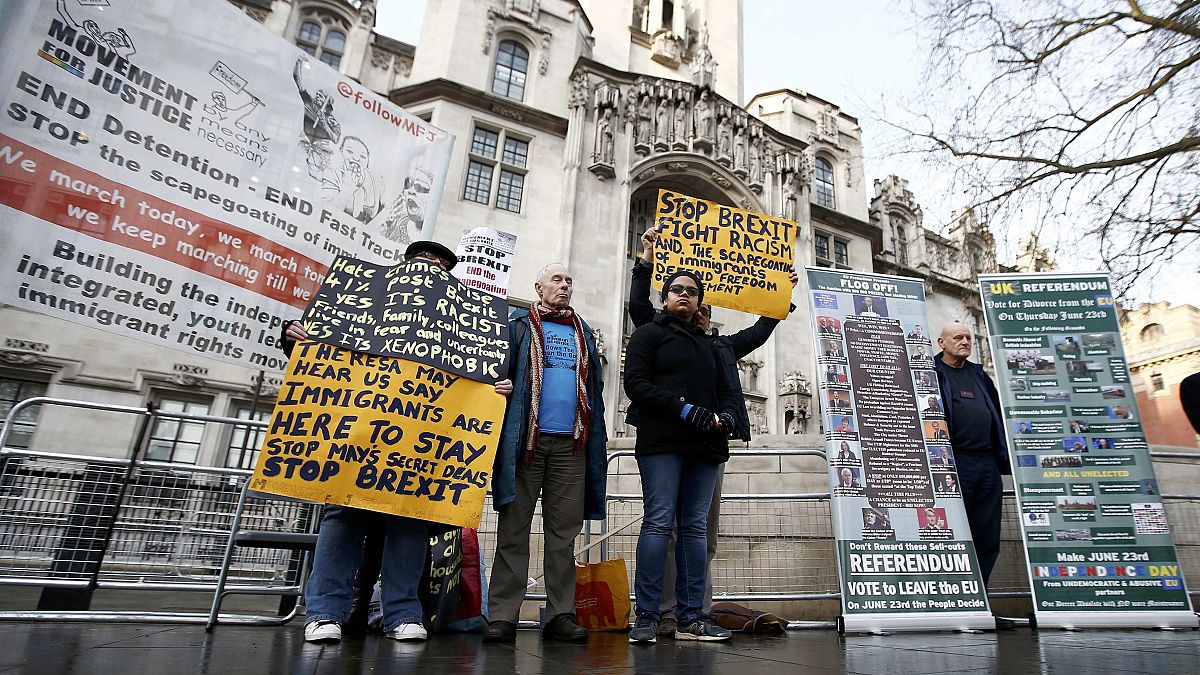People living in the United Kingdom may be able to retain their European Union citizenship says the EU's top Brexit negotiator
People living in the United Kingdom may be able to retain their European Union citizenship under a plan the EU’s top Brexit negotiator says he intends to finalise before the UK begins its exit from the EU in March next year.
The proposal, first suggested in November by Charles Goerens, a liberal MEP from Luxembourg and now parroted by Guy Verhofstadt, who is tasked with hammering out a Brexit deal with the UK, would offer “associate citizenship” to those who opt in the citizen regime.
UK citizens would be given the option to pay a fee in order to retain EU rights including freedom of movement throughout the EU, the right to live and work in the EU and the right to vote in EU elections and be represented by an MEP.
Verhofstadt said this week, speaking to the EU parliament’s constitutional affairs committee, he would be fast-tracking the particulars of this proposal so as to have it ready for when the UK and EU meet to discuss the terms of their separation.
“Some things cannot wait until treaty change,” he said . “Therefore, the ability to keep European citizenship for those who risk losing it will be on the table of the upcoming Brexit negotiations and will be discussed at the moment of the parliament’s resolution, right after the triggering of article 50 in March.”
The UK is waiting to hear the final verdict of a Supreme Court appeal on whether or not UK Prime Minister Theresa May may unilaterally trigger Article 50 of the Lisbon Treaty.
The ruling is expected by early next year, but the UK parliament on Wednesday signalled their support for May’s Brexit timetable.
The push to put in place an offer for associate citizenship of the EU comes on the heels of this parliamentary vote, a move that further cements the likelihood that parliament would not prevent the UK leaving the EU if it is given a say.
Update on the Associate EU Citizenship #Brexitpic.twitter.com/kygzzZQwW0
— Charles Goerens (@CharlesGoerens) December 8, 2016
The EU parliament will decide whether to move forward with an “associate citizenship” plan in the Spring – when it is expected to finalise its stance on Brexit.
In an article written in the Independent newspaper in November, Goerens lays out his reasoning for the citizenship plan.
“The idea is simply to guarantee [for] those who want it some of the same rights they had as full EU citizens, including the right of residence in the EU, and to be able to vote in European elections and be represented by an MEP,” Goerens said. “Since this idea hit the headlines, I have been taken aback by the level of support that I have received for the proposal. Thousands of people from Britain have [been] in touch with me to ask what they can do to make this a reality.”
The idea has gained traction and pro-EU social media groups have rallied behind the motion. An online petition was created by group Save Our Citizenship to lobby MEPs as well as PM May to ensure Britons retain their EU citizenship.
The group calls upon the prime minister to consider those millions of voters who voted to remain in the EU when she undertakes her negotiations.
“We ask that she considers that over 16 million people voted to keep their citizenship this year, and that no people have ever had their citizenship taken away from them outside of armed conflict before,” writes Save Our Citizenship.
.
GuyVerhofstadt</a> & <a href="https://twitter.com/CharlesGoerens">CharlesGoerens
We asked our 78,000 members/followers about #AssociateCitizenship. What did they say?
Yes, oui, ja, si .. pic.twitter.com/QyF0fLcV11— 48 And Beyond (@the48andbeyond) November 17, 2016
The UK and the EU have been at odds with each other regarding the legal status of its respective citizens living in each other’s countries.
It is unclear how May will respond if the EU is able to table the “associate citizenship” offer when the two meet to discuss Brexit.
In October the UK parliament voted not to guarantee the rights of EU citizens living in the UK post-Brexit in order to use the uncertainty surrounding their legal status to leverage favourable concessions from the EU.
In November May again reiterated this position unless the EU guaranteed the rights of UK citizens living throughout the EU’s members countries.
Meanwhile, the number of UK applications for Irish passports has continued to rise since the UK’s June Brexit referendum vote.
Having an Irish passport would guarantee EU citizenship and EU rights.
In November 2016, an estimated 6,800 people in the UK applied for Irish passports, a jump of more than 50 percent from a year ago.
The Irish Department of Foreign Affairs estimates it will receive more than 745,000 passport applications from UK citizens by the end of 2016, increasing to nearly one million by 2019. It also reports applications have risen by 42 percent during the first 10 months of the year, compared with 2015.
